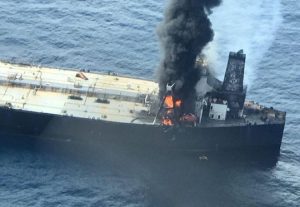A businessman of Pakistani origin, Tahawwur Rana, can be sent to India for his involvement in the 2008 Mumbai terror attack, according to a US appeals court.
US court allows extradition of Pakistani-Canadian businessman Tahawwur Hussain Rana to India for his role in the 2008 Mumbai terror attack by Lashkar-e-Taiba.

In a major setback for Tahawwur Hussain Rana, a US court has made the decision to extradite him to India. The Pakistani-born Canadian businessman is wanted for his involvement in the 2008 Mumbai terror attack, which was carried out by terrorists from the Pakistan-based group Lashkar-e-Taiba. The US Court of Appeals for the Ninth Circuit announced their ruling on Thursday, stating that Rana's extradition is permitted under the treaty between the United States and India.
This ruling comes after Rana, who is currently being held in a Los Angeles jail, appealed against the decision made by the District Court in the Central District of California. He had challenged the certification by a magistrate judge, which declared him as extraditable to India for his alleged participation in the Mumbai attacks. Rana, who is 63 years old, is known to have close ties with David Coleman Headley, a Pakistani-American member of Lashkar-e-Taiba who played a significant role in planning the attacks.
Despite this setback, Rana still has the option to appeal against the ruling. He has not yet exhausted all of his legal options to prevent his extradition to India. The panel of judges from the US Court of Appeals for the Ninth Circuit explained that their decision was based on their limited scope of review in extradition cases. They held that Rana's alleged offense falls within the terms of the extradition treaty between the US and India, which includes an exception for cases where the person sought has already been convicted or acquitted in the requesting country.
The panel also stated that the word "offense" in the treaty refers to a charged crime, rather than the underlying acts, and requires an analysis of the elements of each crime. They relied on the plain text of the treaty, technical analysis from the US State Department, and previous case law from other circuits to support their decision. Additionally, they concluded that a plea agreement made by one of Rana's co-conspirators did not change their ruling. They also determined that India had provided enough competent evidence to support the magistrate judge's finding of probable cause.
Rana, who is a Pakistani national, had previously been tried in a US district court for his support of a terrorist organization responsible for the Mumbai attacks. He was convicted of providing material support to a foreign terrorist organization and conspiring to support a terrorist plot in Denmark. However, he was acquitted of charges related to the Mumbai attacks. After serving seven years in prison, he was released on compassionate grounds. It was then that India requested his extradition to try him for his alleged involvement in the Mumbai attacks.
Rana had argued that he should not be extradited based on conduct for which he was acquitted in the US, claiming that the word "offense" in the treaty refers to underlying acts. On the other hand, the US government argued that it refers to charged crimes and requires an examination of the elements of each crime. The court ultimately sided with the government, stating that the Treaty permits Rana's extradition because the charges in India have distinct elements from those for which he was acquitted in the US.
While Rana had also argued that the government should be estopped from advocating for their current interpretation of the Treaty, based on their previous interpretation in Headley's plea agreement, the court declined to do so. In the end, Judge Smith concluded that because the elements of the crimes charged in India are independent from those under which Rana was prosecuted in the US, his extradition is permitted under the Treaty.
The 2008 Mumbai terror attacks were a tragic event that claimed the lives of 166 people, including six Americans. Ten Pakistani terrorists laid siege to the city for over 60 hours, targeting and killing innocent people at popular and important locations. This ruling by the US Court of Appeals for the Ninth Circuit brings some closure to this devastating incident.










